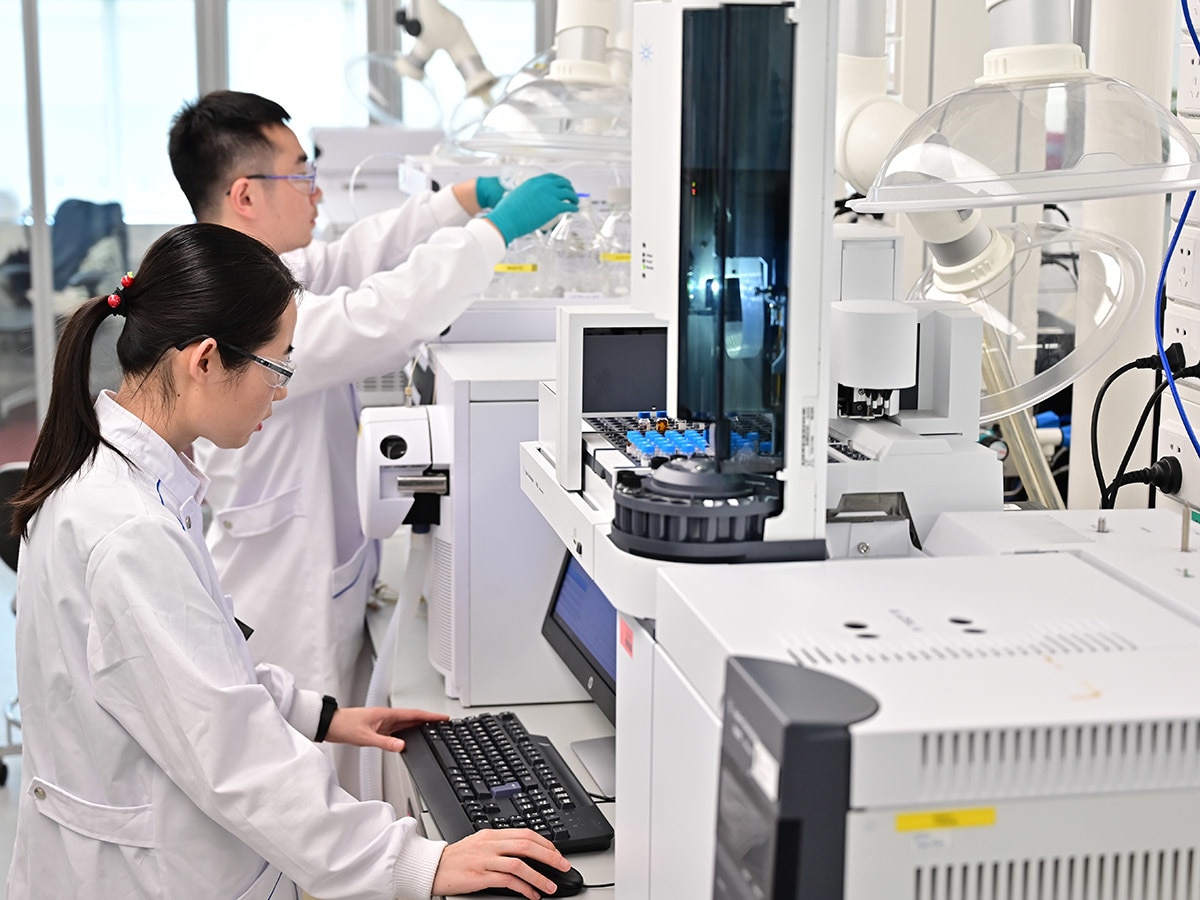Roche’s [RHHBY] share price has been volatile so far in 2021, closing 23 March just 2.31% above its 2020 closing price.
The picture was brighter in January, when Roche’s share price gained 4.2% in the four weeks to 26 January, closing at $44.32.
However, the following weeks saw Roche’s share price fall 11.2%, closing 25 February at $39.36, with further ground was lost in March’s opening days. Increases in Treasury yields on 18 March pushed technology stocks down globally, and the broader slide also had the effect of interrupting what had appeared to be a period of recovery for the Swiss healthcare company.
Testing times
On 16 March, Roche announced the launch of a new research-only test that can identify three high-profile COVID-19 variants. The cobas® SARS-CoV-2 Variant Set 1 Test detects key mutations in the spike proteins that distinguish the B.1.1.7, B.1.351 and P.1 variants, which were first identified in the UK, South Africa and Brazil, respectively.
Spike protein mutations are thought to affect the transmissibility and lethality of COVID-19. Two of the B.1.1.7 variant’s eight spike protein mutations are associated with increased infectiousness. The variant has been estimated to increase the risk of mortality within 28 days of a positive test by 61%, according to a study published in Nature.
Most vaccines developed to combat the disease work by replicating COVID-19 spike proteins in the human body, prompting the autoimmune system to respond by producing antibodies that are effectively programmed to recognise and attack the spike proteins whenever they are encountered.
For this reason, COVID-19 variants are feared to pose a risk to the effectiveness of certain vaccines. Trials have indicated that the efficacy of the Novavax [NVAX] and Janssen [JNJ] vaccines falls significantly against the B.1.351 variant, and the AstraZeneca [AZN]/Oxford vaccine’s effectiveness has been shown to fall from 84% to 75% against B.1.1.7.
75%
AstraZeneca [AZN]/Oxford vaccine’s effectiveness against B.1.1.7.
In February, Sarah Gilbert, a professor of vaccinology at Oxford University, told the BBC’s The Andrew Marr Show that “efforts are under way to develop a new generation of vaccines that will allow protection to be redirected to emerging variants as booster jabs”.
The ability to test and detect different COVID-19 variants at scale and speed will be crucial for global recoveries from the coronavirus pandemic. The Variant Set 1 assay will work with Roche’s cobas® 6800/8800 testing system, and Roche has indicated that additional tests may be developed in response to the appearance of future variants. Roche is positioning itself to be at the forefront of the global mass testing and monitoring effort, having recently acquired US molecular test producer GenMark for $1.8bn.
Made in Europe
Roche is the ninth-largest holding in Ark Invest’s Ark Genomic Revolution ETF [ARKG], which can be seen in the genomics branch of Opto’s Thematic ETF Screener, comprising 3.7% of the fund’s value (as of 23 March). The fund has struggled in the year to date, hampered by the poor performance of its largest holding, Teladoc Health [TDOC], and closed 22 March 0.4% down on its price at the end of 2020.
While some other ETFs in the genome and pharmaceuticals space (such as the SPDR S&P Biotech ETF [XBI] and the iShares US Medical Devices ETF [IHI]) don’t hold Roche, the importance of the company and Europe’s broader role in the fight against the pandemic should not be underestimated. It is highlighted by the prominence of Roche and other biotech firms (such as Novartis [NVS] and AstraZeneca) in the Lyxor MSCI Europe (DR) UCITS ETF [MEUG]. This fund tracks the MSCI Europe Net Return EUR index and is “designed to measure the equity market performance of the developed markets in Europe”.
6%
YTD gains of the Lyxor MSCI Europe (DR) UCITS ETF
As of 23 March, Roche was the fund’s third-largest holding, weighted at 2.28%. Novartis and AstraZeneca come fourth and seventh, respectively, in the fund’s holdings list, comprising 1.86% and 1.27%. The fund has gained 6% so far this year, with a notable rise in the fortnight from 4 March — it gained 3.3% to close 19 March at €138.26.
Analysts, on average, rate Roche a hold, with this rating (or equivalents) being reiterated by analysts from JPMorgan and Berenberg Bank during February. Trefis Team, contributor at Forbes, feels the stock is good value around the $41 mark, given its relatively low multiple of 15x adjusted EPS of $2.65 in 2021.
Continue reading for FREE
- Includes free newsletter updates, unsubscribe anytime. Privacy policy





